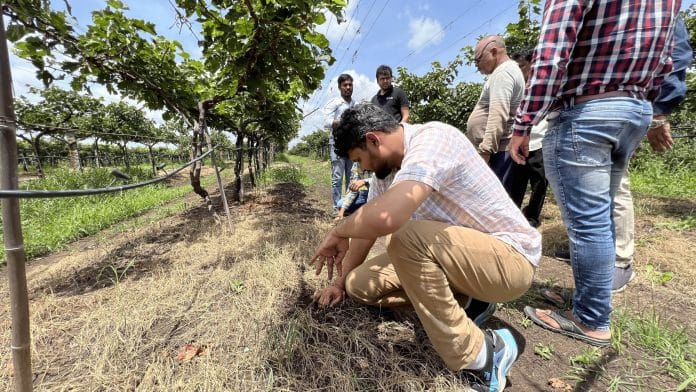Bengaluru: By November, crates of produce start arriving at Fyllo’s tiny office in Bengaluru’s HSR Layout: sugarcane from Maharashtra, carrots from Karnataka, and guavas from Tamil Nadu. These thank-you gifts come from farmers grateful for the startup’s AI sensors that monitor the health of seeds, soil, and sprouts.
Standing in the debris of discarded cartons and hay, Fyllo’s co-founder Sudhanshu Rai holds an apple aloft.
“This is the first time in two years he was seeing such quality apples on his farm due to our device. He had tears in his eyes while speaking to us,” said Rai. Across India, around 10,000 farmers are using Fyllo’s AI sensors—Nero and Kairo—for real-time updates on nutrients, diseases, pests, soil moisture, and weather management for each stage of the crop cycle. They receive the data on their mobile phones through a multilingual app.
Fyllo is just one of many tech-based agri startups thriving in Bengaluru, striking contracts and deals with governments, incubators, and farmers. India’s nascent agritech sector, currently occupying less than 1 per cent of the market, is poised to bear fruit, with a projected valuation of $24 billion, according to Niti Aayog. Bengaluru is emerging as a petri dish for startups with ambitions to solve the agriculture sector’s problems.

Bengaluru provides the ideal entrepreneurial support system for these agri startups to come up with innovations…We are seeing a growth in the number of agritech startups, which will certainly help address timely weather forecast information and pest control issues in agriculture. AI-based innovations will mitigate these challenges in a much shorter time and, hopefully, climate adaptation will be quicker
—Gopal Naik, former economics professor at IIM Bengaluru
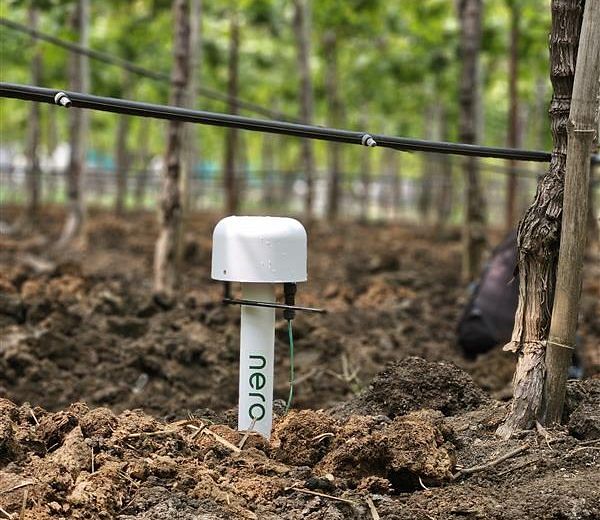
These startups are tapping into AI to offer practical solutions to farmers battling water scarcity, disease-ridden crops, and climate change. Some, like Nero and Kairo, can identify diseases a plant is at risk of. Another startup, BeePrecise—still in its bootstrap phase—monitors the health of beehives needed for pollination. Others have deployed AI to automate irrigation systems.
As of July 2024, Karnataka has the second-highest number of agritech startups (211), trailing only Maharashtra (226), according to data from the Ministry of Agriculture and Farmers Welfare.
“Bengaluru provides the ideal entrepreneurial support system for these agri startups to come up with innovations,” said Gopal Naik, former economics professor at IIM Bengaluru. “The city has vast skilled manpower along with a plethora of research institutions that are always on the hunt for scientific solutions to society’s problems.”
It is this ecosystem that attracts entrepreneurs to Bengaluru, said Naik, who has also been a consultant to international organisations such as WHO, FAO, and NAFED on agriculture-related policies.
Rai is from Uttar Pradesh, and his business partner, Sumit Sheoran, is from Haryana. Both come from farming families, met while working at an IT firm in Bengaluru, and decided to build their own agritech startup. That was in 2019. Since then, they have secured three funding rounds totalling $96 million from top investors like Triveni Trusts, Ninjacart, and the Indian Angel Network (IAN).
“In Bengaluru, we have access to the right kind of IT infrastructure, skilled software engineers and investors, which wasn’t possible anywhere else,” said Sheoran. “The whole startup culture and cut-throat competition in tech made us want to establish the company here.” Their choice paid off in May 2024 when the company raised $4 million in funding, led by IndiaQuotient and SIDBI Ventures, the venture capital arm of the Small Industries Development Bank of India.
As temperatures rise and water becomes scarce, the demand for climate-resilient agricultural solutions has become more urgent. “We are seeing a growth in the number of agritech startups, which will certainly help address timely weather forecast information and pest control issues in agriculture,” said Naik. “AI-based innovations will mitigate these challenges in a much shorter time and, hopefully, climate adaptation will be quicker.”
Also read: How AI can help Indian dairy farmers
Handling the threat of diseases
Honeybee keeper Dayanand KS from Davangere was preparing to send beehives to a coffee farm in Chikmagalur when the BeePrecise App on his phone blared an alarm.
“Willow beehive needs attention! Mite infection risk detected. Immediate intervention required!”
The AI-powered device had detected parasitic mites crawling into one of the hives.
Rushing to the site, Dayanand found the mites and promptly moved the affected hive to a different location for pollination. The device identified high humidity—over 80 per cent—as a key factor behind the infestation. For bees to thrive, humidity levels must remain between 40-60 per cent.
BeePrecise’s AI sensors, installed in hive boxes, allow beekeepers to monitor the health of the colonies and receive real-time alerts and insights.
The mite infection was worrying, but it was not an isolated issue. Over the past two years, Dayanand has seen a rise in new infections and diseases affecting bees and their hives.
One such dangerous infection—Thai Sacbrood disease—resurfaced in Karnataka in 2021. The disease, which had wiped out 90 per cent of Asiatic honeybee colonies in South India during its 1991-1992 outbreak, has once again raised alarm among beekeepers. While scientists are still investigating the resurgence, Dayanand attributes it to warmer temperatures, unseasonal rains, and human interference.
“It’s impossible to keep an eye on the hives 24×7—that is, until I got this device,” said Dayanand, pointing to the BeePrecise AI sensors installed on his hive boxes.
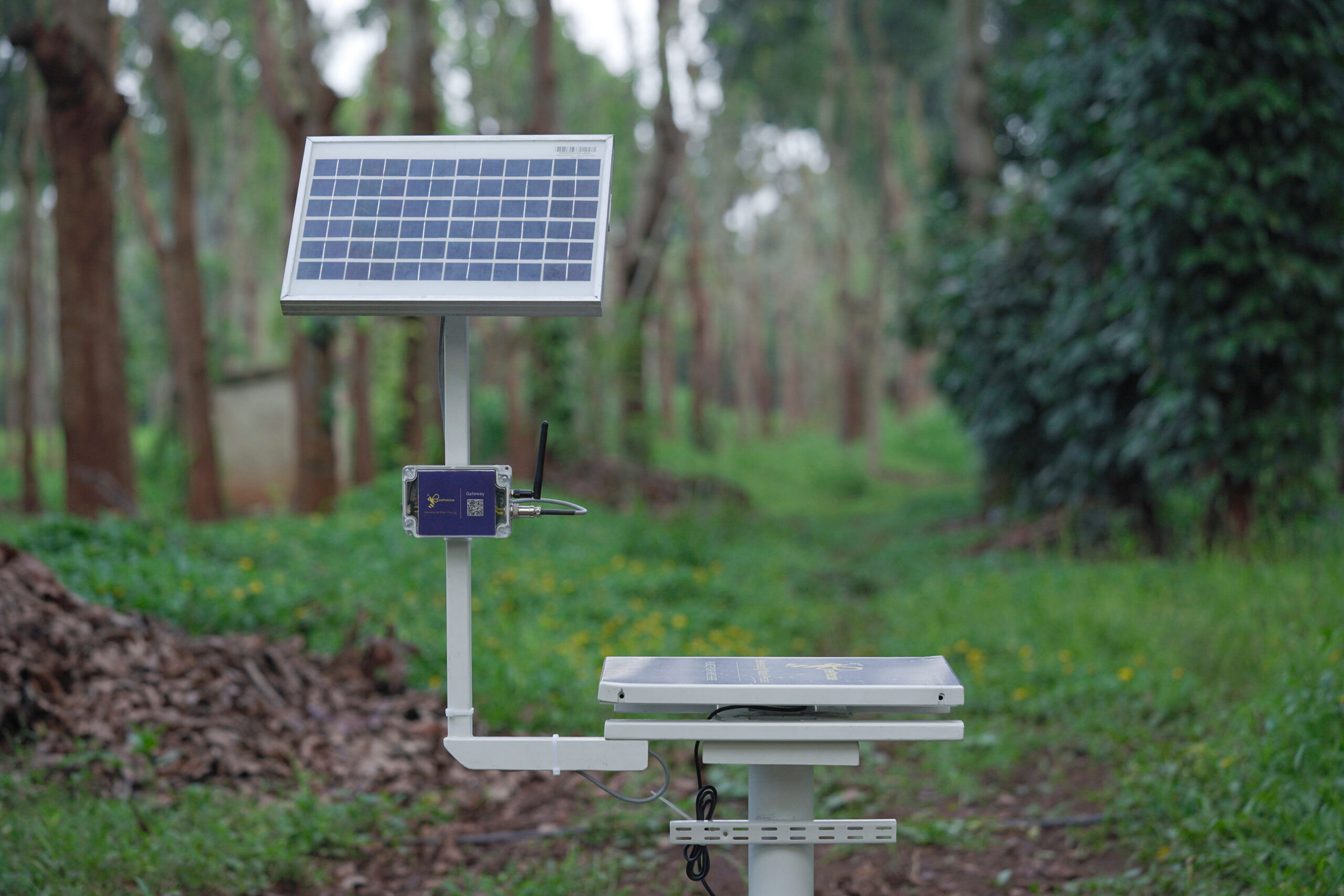
Across India, massive honeybee colonies, vital for the survival of countless plants and trees, are collapsing.
BeePrecise can’t stop this trend, but it can sound an alarm to allow for damage control. Unlike Fyllo, however, BeePrecise’s founders are yet to scale up their operations. The startup, which has no angel investors, has partnered with incubators such as the University of Agricultural Sciences, Bangalore, and the Indian Institute of Management, Bangalore.
Their AI sensors, installed in hive boxes, allow beekeepers to monitor the health of the colonies and receive real-time alerts and insights. Sujay Suvarna, one of BeePrecise’s three co-founders, claims it is the first such sensor developed in India.
“Without bees, biodiversity as we know it will be wiped out,” warned Suvarna. “We risk losing fruits, nuts, and even onions from our food chain.”
A similar story of crop loss pushed Sheoran to launch Fyllo.
He was in Class 12 when an unseasonal downpour ruined his family’s wheat farm in Bhiwani, Haryana. His father replanted the seeds, only for an eerie black powder to spread across the grains, destroying the crop again. “A disease killed our family’s only source of income that season,” recalled Sheoran. This experience became the driving force behind his startup and helping farmers like his father monitor their crops.
“We didn’t know which area to focus on initially, so we would listen to the Kisan call centre (a government outreach programme for farmers). We discovered that 85 per cent of farmers’ questions revolved around crop diseases,” Sheoran said.
Also read: Indian agriculture is ‘a walled-off garden stuck in the 60s’. Private investment is the answer
Automating irrigation systems
Disease control is only part of the problem. Extreme heat and drought-like conditions are leaving village pumps and wells dry, forcing farmers to adapt. To solve this problem, several agritech startups and platforms have stepped into the fray over the past few years.
Earlier this month, Cropin Technology, an AI platform for food and agriculture, launched Sage, a real-time agri-intelligence solution. Google introduced the Agricultural Landscape Understanding (ALU) tool to help boost crop yield.
Dharwad farmer Kiran Veera turned to smart farming startup AgWise to conserve water. The drought of 2023 was the final straw for him—ten acres of his green gram crop withered away as Karnataka experienced one of its worst droughts in 123 years.
Meanwhile, in Bengaluru, a group of agritech ‘evangelists’ had already been anticipating the consequences of climate change.
“We started visiting farmers across the country in 2017 and realised that many were over-irrigating their fields as a safety measure because monsoons were becoming unpredictable. But when drought hit, they had no water left for their farms,” said Raghu, chief business officer at AgWise.
To address this, AgWise developed a solar-powered, wireless AI-based drip irrigation system in collaboration with the University of Agricultural Sciences, Bangalore. The device, equipped with sensors to monitor soil moisture and temperature, automates irrigation by supplying water only when necessary. Unlike traditional farming methods, it minimises labour and reduces waste.
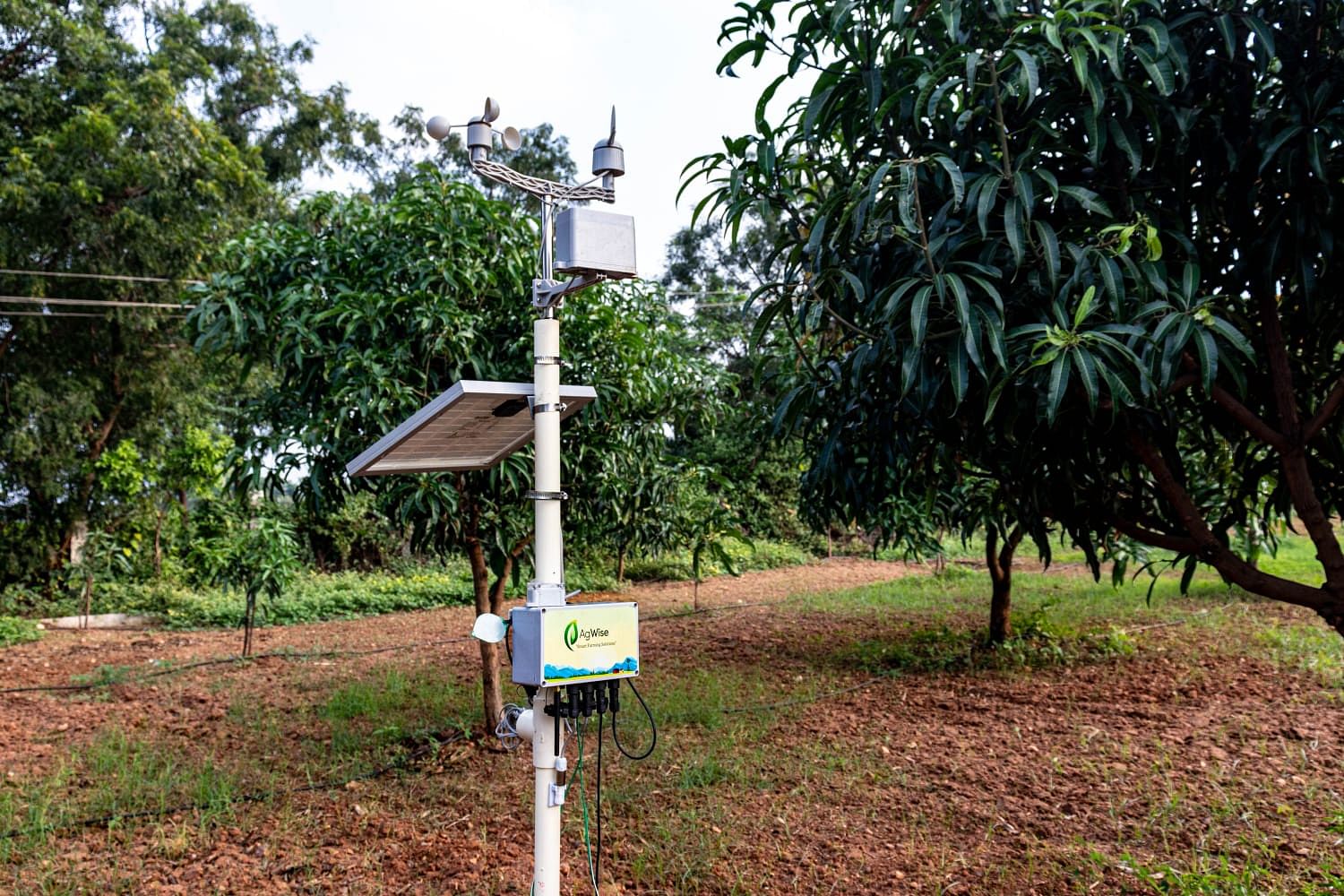
At the annual agricultural festival Krishi Mela in Bengaluru on 14 November, Veera, dressed in a white shirt and pleated cream-coloured pants, watched eagerly as a team from AgWise demonstrated the device.
“A steady supply of electricity is only available during the night in our village. I usually stay awake every night to irrigate the field for four to five hours,” he said. It’s a routine inherited from his father and grandfather. But now, in his mid-50s, Veera is unable to endure the back-breaking demands of farming. The younger generation has largely moved on to other jobs for a stable income.
“My son went to the city for a software job. It pays him better. I am happy for him,” Veera said.
AgWise developed a solar-powered, wireless AI-based drip irrigation system in collaboration with the University of Agricultural Sciences, Bangalore. The device, equipped with sensors to monitor soil moisture and temperature, automates irrigation by supplying water only when necessary.
Representatives from AgWise claimed that their device could reduce water consumption by up to 60 per cent and fertiliser use by 50 per cent. For farmers, this would reduce input costs while ensuring maximum yield.
Upon hearing that AgWise’s device automates the entire irrigation process, Veera asked in relief, “So I don’t have to stay awake at night waiting for the right time to irrigate?”
Despite being a self-funded company, AgWise has scaled up operations with the help of NGOs, Farmer Producer Organisations (FPO), and state-sponsored subsidies. Currently, around 20,000 farmers across Uttar Pradesh, Assam, Maharashtra, Tamil Nadu, Telangana, and Karnataka are using the device, which costs Rs 30,000 after government subsidy.
Back at AgWise’s busy office in Bengaluru’s HSR Layout, a ‘hi’ popped up on their WhatsApp chatbot from a farmer in Uttar Pradesh. He wanted to know more about the AI-based drip irrigation system.
“We have a 54 per cent sign-up rate,” said Varun Prabhakar, AgWise’s agritech head.
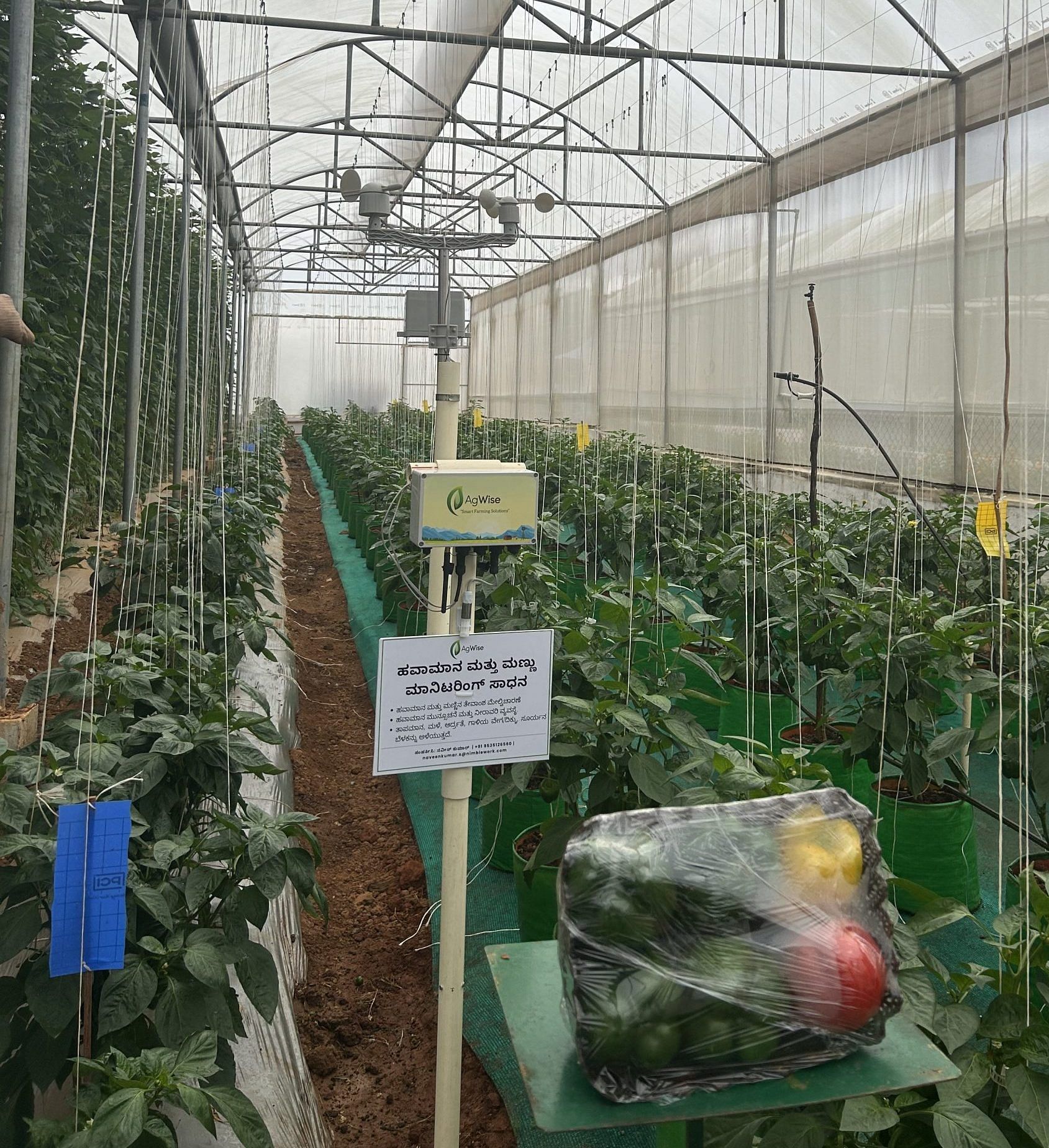
Also read: Armed with AI & drones, online mandis shake up farming, aim to cut waste to boost farm income
Getting farmers to trust AI
The government and private sector are bullish on agritech startups that promise to disrupt traditional farming practices. A recent Reserve Bank of India report identified 19 agritech startups nearing unicorn status and another 40 valued at over $10 million. Yet, persuading farmers to adopt these new technologies remains the biggest challenge. Spotty internet connectivity, poor power supply, and limited access to smartphones are persistent hurdles.
Even with subsidies, affordability remains an issue as not everyone can buy these high-tech devices. Seena Kappu, a beekeeper in Kodagu, wanted to invest in BeePrecise’s sensors but found the Rs 3,000-Rs 7,500 per hive price tag out of his budget.
Other farmers are still sceptical about using “modern technology” in what they see as a traditional, generational practice. They still trust their intuition over innovation.
“We had to visit their villages and counter their deep-rooted beliefs about agriculture,” said Fyllo co-founder Rai. He and Sheoran spent months travelling to rural areas across India during the pandemic.
“We met with farmers during the day and slept in our cars at night,” recalled Rai. To encourage adoption, they introduced a subscription model, allowing farmers to try the device for a few months before committing. The device, priced at Rs 50,000, covers up to 100 acres. This meant that a group of farmers could share the investment in a single device.
This boots-on-the-ground evangelism paid off.
“Farms that used our device began producing better yields than neighbouring farms. Soon, we started getting calls and requests from those farmers as well. They wanted to know how they could turn their farms around,” said Rai.
It is all about establishing trust between farmers, their land, and the startup. AgWise took a similar approach, with its representatives spending anywhere from three months to a year working closely with farmers in villages. Although their products launched in 2017, they only began seeing a boost in sales in 2022.
“Extreme climate events have forced farmers to make themselves aware of these new technologies. There is more acceptance and engagement now,” said Prabhakar.
It’s a start.
(Edited by Prashant)



